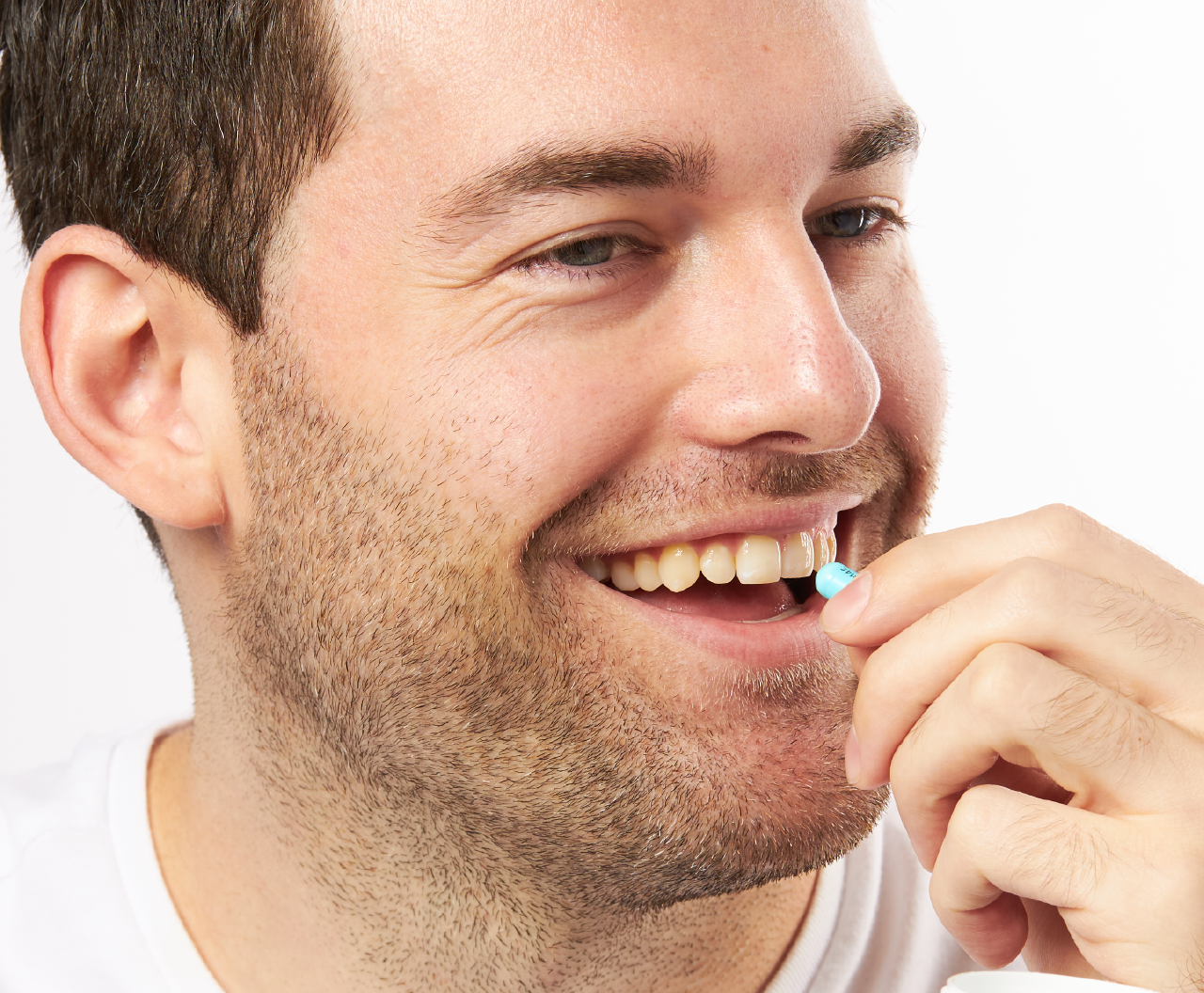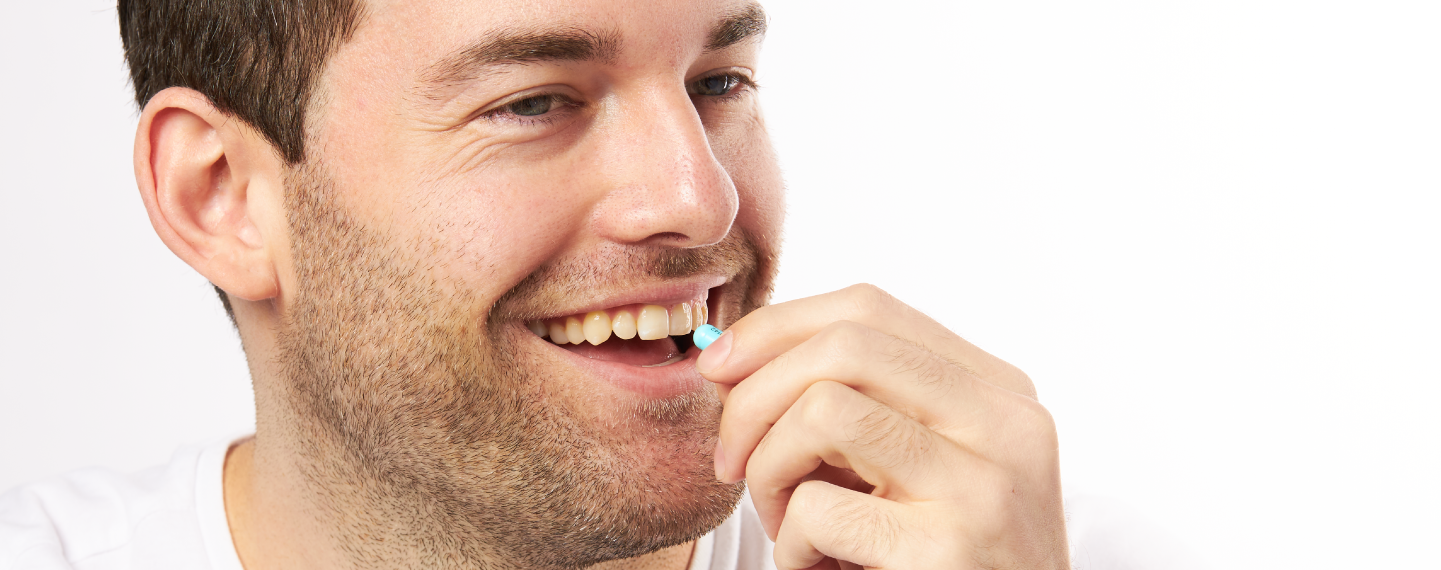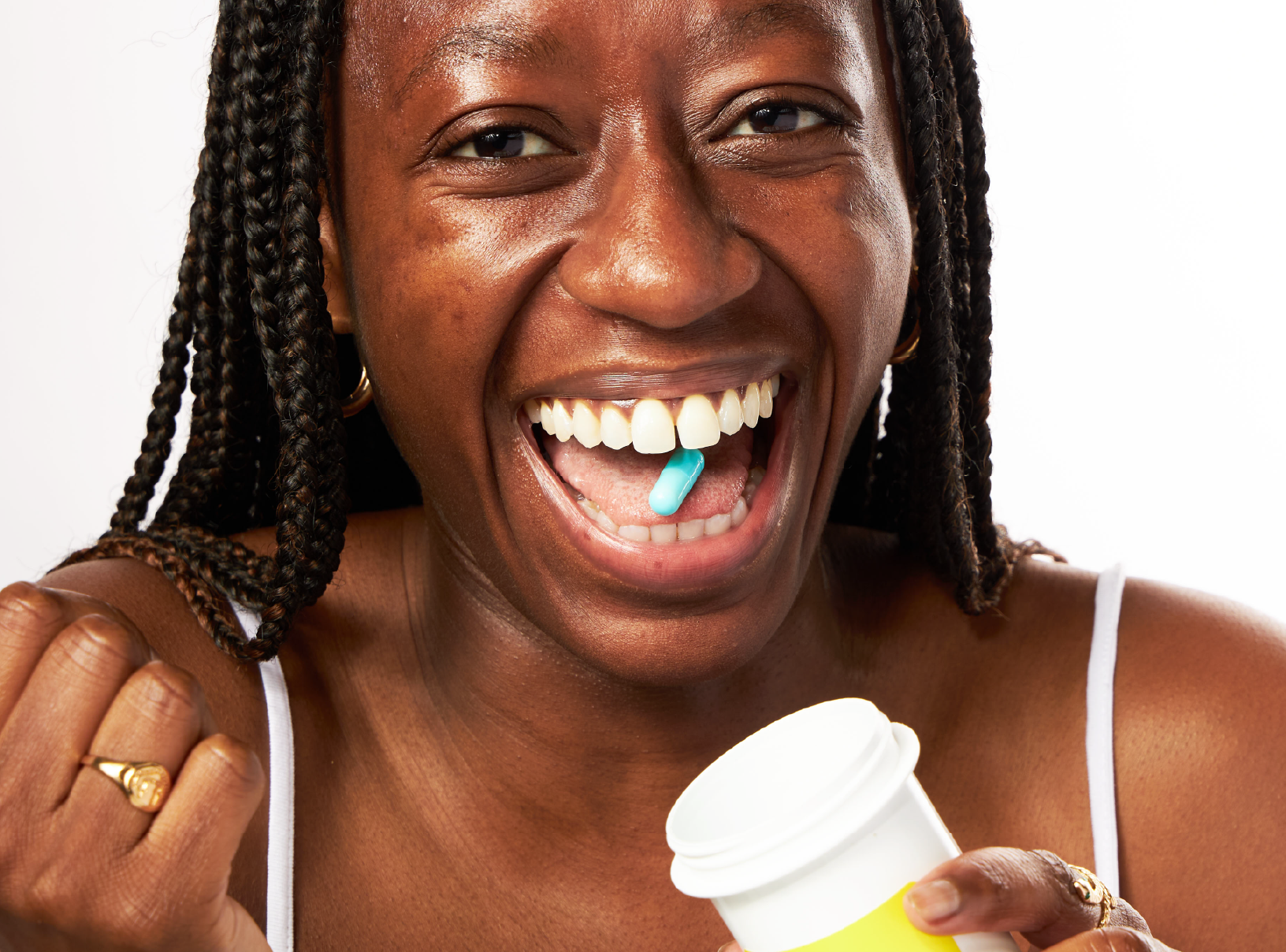Apostrophe Treatments
Doxycycline: An Antibiotic For Acne


SHARE
Apostrophe Treatments
Doxycycline: An Antibiotic For Acne
Medically reviewed by Aimee Paik, MD
Written by Apostrophe Team
Last updated 11/3/2024
If you’ve tried every face wash, cream, and gel on the market and nothing seems to be able to break through your stubborn breakouts, your doctor may prescribe a round of antibiotics. Not just for sinus infections or battles with strep throat, dermatologists keep antibiotics in their arsenal as a second or third line of defense against acne. One of the most common types they prescribe is called doxycycline - a drug in a group of antibiotics called tetracyclines that are named for the four carbon rings that make up their molecular structure (tetra = four).
How doxycycline works for acne
Doxycycline is an oral antibiotic and can come in capsules or tablets (tablets are flat while capsules are cylindrical). When taken properly, this medication minimizes inflammation while targeting the acne-causing bacteria in your pores - no more red and painful zits. Board-certified dermatologist Dr. Aimee Paik reiterates, "Its effects only last while you are taking the medicine and if it is the only acne medication you are taking, acne will typically recur once you stop it. That’s why topical medicines are so important since they do the real work of treating and preventing acne." Since the medical and scientific communities have become increasingly concerned about antibiotic resistance in recent decades, doxycycline is typically only used for moderate to severe acne and is almost always combined with topical retinoids or benzoyl peroxide. Using a combination of treatments and limiting the course of medication decreases the likelihood of acne-causing bacteria developing resistance - the last thing you would want!
Some things to keep in mind
There’s a lot to consider if you are thinking about taking antibiotics for acne and we want to arm you with the knowledge you need to make an informed decision. Doxycycline is a powerful antibiotic which can cause, among other things, skin irritation and upset stomach. Be sure to always follow your provider’s instructions to significantly reduce your likelihood of experiencing these adverse reactions:
Take doxycycline after a full meal and with a large glass of water. Eating a meal will reduce your risk of upset stomach, and the glass of water will reduce irritation in your throat.
After taking doxycycline, avoid lying down for at least an hour. Staying on your feet will reduce your chances of irritating your esophagus, which can produce a heart-burn like sensation.
Additionally:
This medication can make you sensitive to the sun. Apply sunscreen every morning (of at least SPF 30) and do not go tanning.
Avoid taking this medication with any dairy products. Dairy can cause the medication to become less effective.
Consistent usage is key! Doxycycline only works if you take is regularly and correctly. Even if your acne is improving, finish the full course that the doctor prescribed. If you stop short, your acne may return worse than before.
Where can I get doxycycline?
Doxycycline is a prescription medication that can only be obtained through a physician. Although general practitioners and family doctors offer acne consultations, dermatology providers are the most qualified professionals for diagnosing and treating your acne.
1. Amin K, Riddle CC, Aires DJ, Schweiger ES. Common and Alternate Oral Antibiotic Therapies for Acne Vulgaris: A Review. Journal of Drugs in Dermatology. 2007;6(9). http://jddonline.com/articles/dermatology/S1545961607P0873X/1. 2. Benzoyl Peroxide Topical : Uses, Side Effects, Interactions, Pictures, Warnings & Dosing. WebMD. https://www.webmd.com/drugs/2/drug-1344/benzoyl-peroxide-topical/details. Accessed February 27, 2019. 3. Del Rosso JQ. Oral Doxycycline in the Management of Acne Vulgaris: Current Perspectives on Clinical Use and Recent Findings with a New Double-scored Small Tablet Formulation. Journal of Clinical and Aesthetic Dermatology. 2015;8(5):19-26. https://www.ncbi.nlm.nih.gov/pmc/articles/PMC4445892/. Accessed February 27, 2019. 4. Doxycycline Monohydrate Oral : Uses, Side Effects, Interactions, Pictures, Warnings & Dosing. WebMD. https://www.webmd.com/drugs/2/drug-8773-7073/doxycycline-monohydrate-oral/doxycycline-oral/details. Accessed February 27, 2019. 5. Doxycycline: MedlinePlus Drug Information. MedlinePlus. https://medlineplus.gov/druginfo/meds/a682063.html. Accessed February 27, 2019.
Like what you just read? Sign up for our email list to get the scoop on skincare science delivered straight to your inbox.

Deep Dives
A dermatologist shares his thoughts on the recent studies about benzoyl peroxide and benzene.
Read More
Education
What is milia?
What is milia? Today, we’re jumping into one type of bump that you may have heard about most commonly in infants — milia.
Read More
Education
Best moisturizer for acne-prone skin
If you have combination acne-prone skin, figuring out which moisturizer is best for your skin might be tough. In this guide, we break down the best moisturizer for combination, acne-prone skin.
Read More
